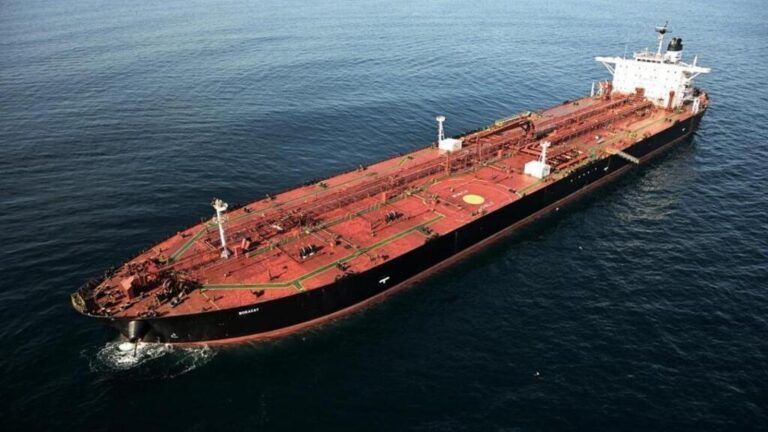France has extended the detention of two individuals linked to a Russian “shadow fleet” vessel, authorities confirmed this week. The move comes amid growing international scrutiny of covert maritime operations suspected of bypassing sanctions targeted at Moscow. The detainees, held in connection with activities involving the vessel, remain under investigation as France continues to clamp down on illicit maritime practices in European waters. This development highlights the heightened geopolitical tensions and enforcement efforts surrounding Russia’s indirect naval operations.
France Extends Detention of Russian Crew Amid Shadow Fleet Investigation
French authorities have officially extended the detention of two Russian crew members connected to a vessel implicated in the ongoing shadow fleet investigation. The move highlights the intensifying scrutiny over maritime operations believed to be circumventing international sanctions and engaging in covert shipping activities. Officials cited the complexity of the investigation and the need for thorough examination before any legal conclusions can be drawn.
The vessel, suspected of being part of a network used to obscure cargo origin and ownership, has drawn attention for its role in facilitating undisclosed trade routes. Key points under review by the authorities include:
- Suspected sanction evasion tactics through shell companies
- Irregular tracking and flag changes during voyages
- Connections to broader geopolitical tensions impacting maritime law enforcement
Authorities have emphasized the ongoing nature of the inquiry, leaving open the possibility for further detentions or legal actions as evidence emerges.
Legal and Diplomatic Implications of Prolonged Detention in High-Stakes Maritime Cases
The extended detention of individuals linked to high-profile maritime incidents often ignites a complex web of legal and diplomatic challenges. In this instance, the decision to prolong custody underscores the meticulous scrutiny applied to cases involving vessels linked to so-called ŌĆśshadow fleetsŌĆÖ ŌĆö entities often accused of circumventing international sanctions and maritime regulations. From a legal standpoint, authorities must navigate a delicate balance between ensuring due process and addressing broader security concerns, all while managing the rights of the detainees under international law. Prolonged detention can raise questions about compliance with the United Nations Convention on the Law of the Sea (UNCLOS) and other maritime agreements that regulate jurisdiction and treatment of foreign nationals.
Diplomatically, such detentions have the potential to escalate tensions between the nations involved, particularly when geopolitical rivalries underpin the maritime disputes. The bilateral engagements often extend beyond judiciary boundaries into the realm of political negotiation, affecting broader international relations. The following table outlines key legal instruments and diplomatic implications frequently observed in similar maritime cases:
| Aspect | Legal Considerations | Diplomatic Impact |
|---|---|---|
| Jurisdiction | Flag state vs. port state authority | Disputes over sovereignty claims |
| Detention Duration | Maximum holding period under international law | Potential for bilateral protests or sanctions |
| Human Rights | Treatment and conditions of detainees | Pressure from international watchdogs and NGOs |
| Security Concerns | Investigation into illicit maritime activities | Heightened scrutiny and media attention |
Operational Challenges in Policing Shadow Fleet Activities in International Waters
Enforcement agencies face considerable jurisdictional ambiguities when tackling shadow fleet operations in the open seas. The elusive nature of these vessels, often unregistered or falsely flagged, complicates legal identification and subsequent action. The recent extension of detention by French authorities highlights the challenge of securing cooperation across borders, as the detained individuals aboard the so-called Russian shadow fleet vessel represent a complex nexus of international maritime law and geopolitical tensions. Access to tangible evidence and reliable intelligence remains constrained, hampering swift judicial procedures.
The operational burden is further intensified by the need to balance diplomatic sensitivities with robust law enforcement. Agencies must navigate through an intricate maze of bilateral agreements and maritime conventions that often lag behind the rapidly evolving tactics of shadow fleets. Key challenges include:
- Identifying flag states and enforcing compliance
- Coordinating multi-national patrols and surveillance
- Addressing gaps in maritime technology and real-time tracking
- Overcoming logistical constraints in remote oceanic regions
These factors collectively slow down operational response times and complicate prosecutions, underscoring the urgent need for enhanced international cooperation and updated legal frameworks.
Strategic Recommendations for Enhancing Maritime Security and International Cooperation
In light of recent incidents involving the detention of crew members from a Russian ŌĆśshadow fleetŌĆÖ vessel, it is imperative that nations strengthen their maritime security protocols through enhanced collaboration. Countries bordering critical sea lanes should prioritize information sharing mechanisms to monitor suspicious activities effectively. Establishing joint task forces and utilizing advanced surveillance technologies will facilitate proactive responses to maritime threats, thereby deterring illicit operations and safeguarding global trade routes.
Further, international cooperation must extend beyond security enforcement to encompass legal and diplomatic frameworks. Promoting harmonized legislation and creating rapid dispute resolution platforms will address jurisdictional challenges often encountered in maritime law enforcement. The following table outlines key strategic areas to bolster multinational cooperation:
| Strategic Area | Action Points | Expected Outcome |
|---|---|---|
| Information Sharing |
| Improved Maritime Domain Awareness |
| Joint Task Forces |
| Heightened Deterrence & Rapid Response |
| Legal Frameworks |
| Swift Legal Resolution & Enforcement |
Future Outlook
As the investigation continues, FranceŌĆÖs decision to extend the detention of the two Russian nationals linked to the so-called ŌĆ£shadow fleetŌĆØ underscores the growing scrutiny of maritime activities in the region. The case highlights ongoing international concerns over transparency and legality in global shipping operations, with authorities remaining vigilant in their efforts to address potential breaches. Further developments are expected as the inquiry progresses.




